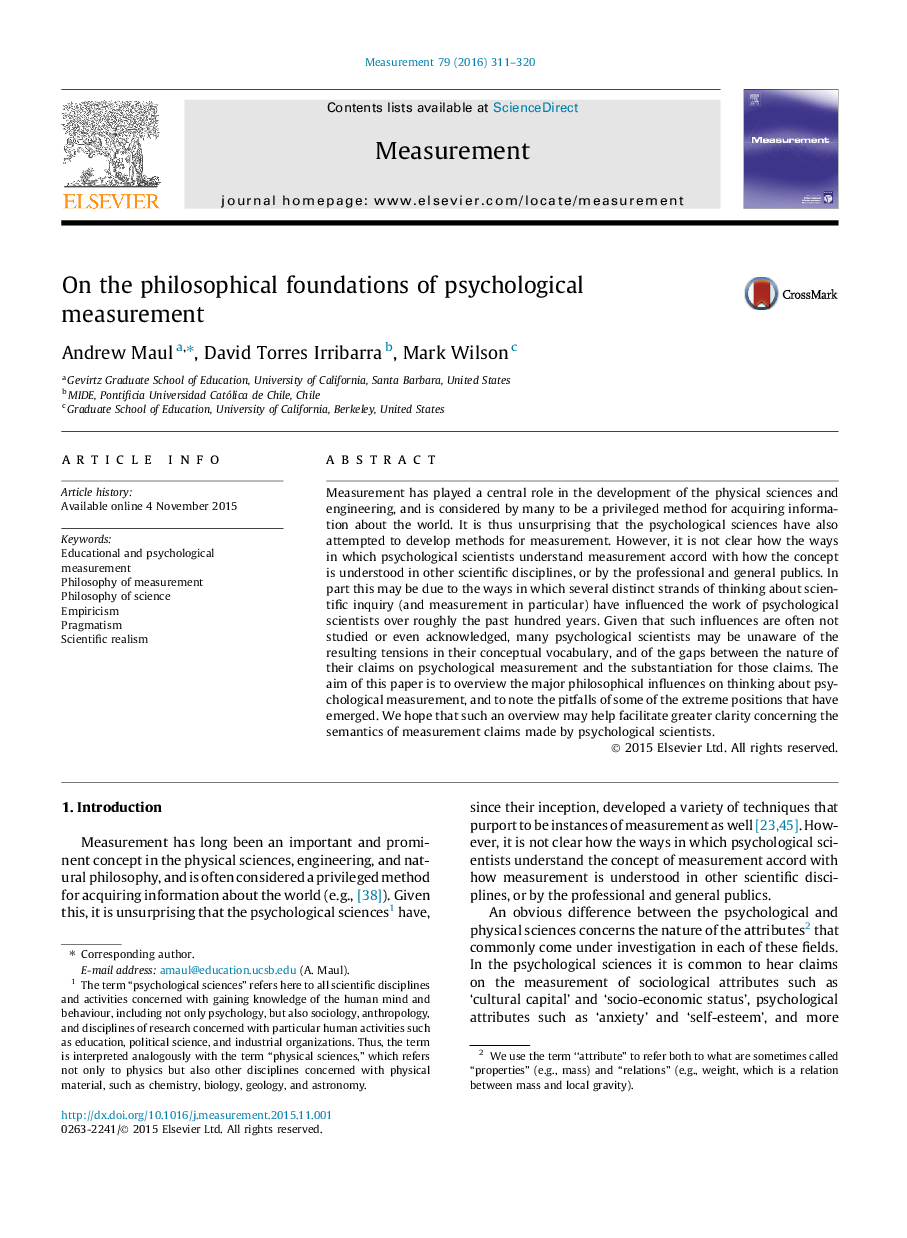| Article ID | Journal | Published Year | Pages | File Type |
|---|---|---|---|---|
| 7124385 | Measurement | 2016 | 10 Pages |
Abstract
Measurement has played a central role in the development of the physical sciences and engineering, and is considered by many to be a privileged method for acquiring information about the world. It is thus unsurprising that the psychological sciences have also attempted to develop methods for measurement. However, it is not clear how the ways in which psychological scientists understand measurement accord with how the concept is understood in other scientific disciplines, or by the professional and general publics. In part this may be due to the ways in which several distinct strands of thinking about scientific inquiry (and measurement in particular) have influenced the work of psychological scientists over roughly the past hundred years. Given that such influences are often not studied or even acknowledged, many psychological scientists may be unaware of the resulting tensions in their conceptual vocabulary, and of the gaps between the nature of their claims on psychological measurement and the substantiation for those claims. The aim of this paper is to overview the major philosophical influences on thinking about psychological measurement, and to note the pitfalls of some of the extreme positions that have emerged. We hope that such an overview may help facilitate greater clarity concerning the semantics of measurement claims made by psychological scientists.
Related Topics
Physical Sciences and Engineering
Engineering
Control and Systems Engineering
Authors
Andrew Maul, David Torres Irribarra, Mark Wilson,
